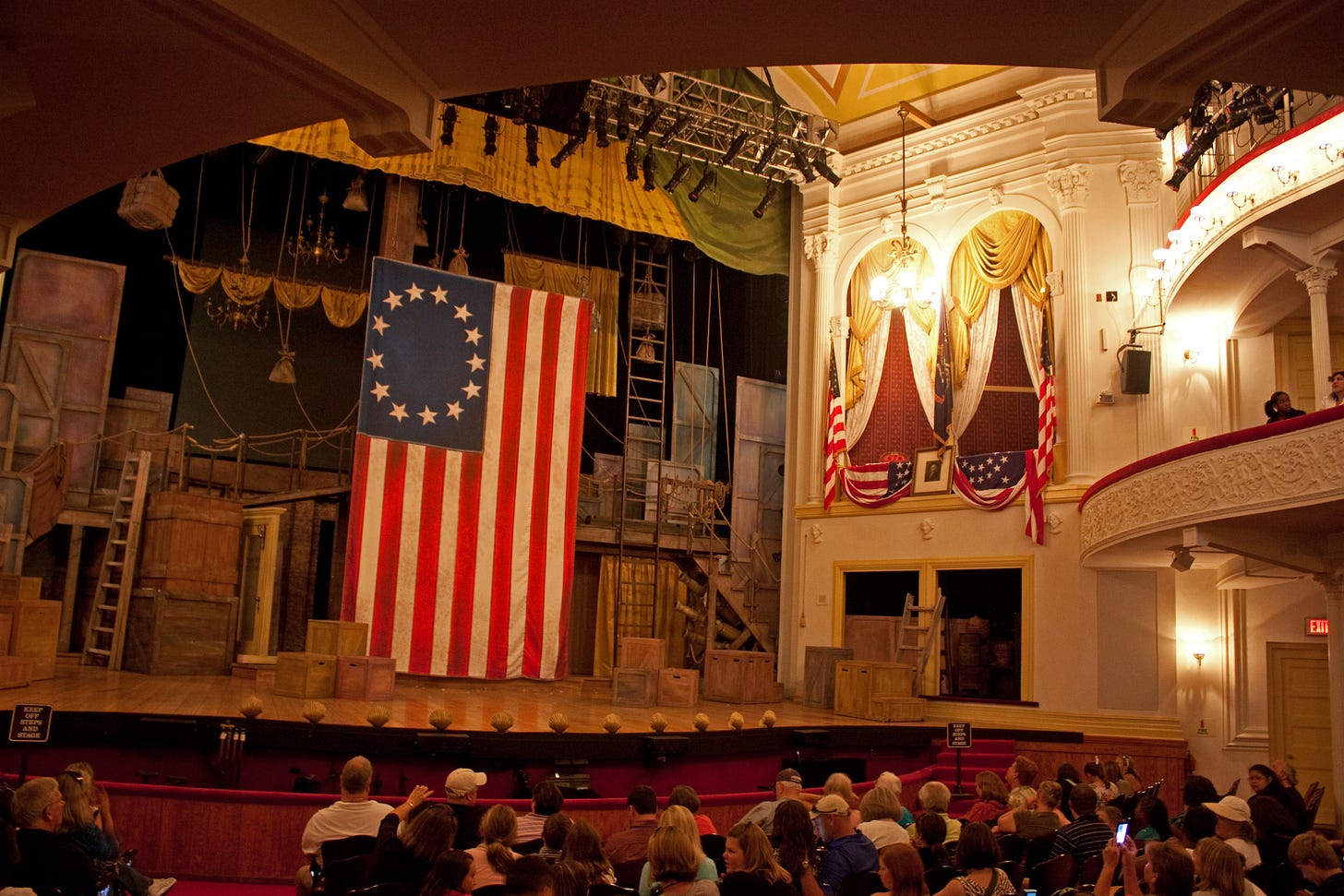The Already Written and the Not Yet Lived
A story about Lincoln, sound, and the strange hope that lives in us

In last week’s post, I left you with a question:
What if the future isn’t composed in ink, but in movement? What if meaning lives not in already-written sentences, but in the tuning of attention, the movement of a body through space and time?
If we’re not just readers of the world but co-authors of it, then another question follows:
How do we co-author a future with what’s already written?
What do we do with the lines we didn’t choose, the roles we’ve inherited, the scripts and the scenes that seem to define what’s possible?
We’ve all watched a film we knew would end in tragedy, and still, some part of us hoped it wouldn’t.
That the Titanic might stay afloat. That Jack might survive and be reunited with Rose. That Romeo might arrive in time. That Abraham Lincoln might not go to the theater that night.
We know how the story ends. And still, we hope. Why does something in us lean forward, as if this time, the thread of history might bend in a gentler direction?
The Scene That Still Breathes
Documentary legend Ken Burns once said the hardest edit of his career was a scene he never filmed: the assassination of Abraham Lincoln. He didn’t reenact it with actors. He didn’t stage the scene visually. Instead, he reanimated it through sound.
A slow zoom into an empty theater box. The creak of floorboards. The hush of a crowd. A gunshot. Then silence.
If you turn the sound off, almost nothing happens.
But with sound? The air thickens. The moment trembles. And somehow, even knowing how it ends, you find yourself hoping:
Maybe this time he won’t die.
Burns put it simply:
“What we’re trying to do is wake the dead.”
Not Rewriting. Re-sensing.
This isn’t about changing history. It’s about how we meet it: sensorially, emotionally, narratively.
Burns doesn’t rewrite Lincoln’s death. He re-senses it, inviting us not to reinterpret, but to feel history, again, anew, now.
And in that space, something quiet but powerful happens. The event is fixed. But our relationship to it isn’t. We don’t change the facts. But we move differently through them.
And in that movement, new meaning emerges. It’s not historical revision. It’s experiential revision. Not erasing the page, but turning it in the light, so something glimmers that we hadn’t seen before.
The Invitation
So here’s the thread tying all of this together:
The past is scripted. But meaning isn’t.
Even in stories we cannot change, stories we’ve lived through or stories we’ve inherited, authorship is still available to us.
Not just in the already written. But in the not yet lived.
The camera zooms in. The moment unfolds. And still, we hope.
Not because we’re naive. But because we’re human.
From History to the Body
This isn’t just true of national stories. It’s also true of personal ones.
A doctor folds her laptop shut and speaks the word you hoped you’d never hear: cancer, depression, diabetes, Parkinson’s. A diagnosis written in a language you didn’t choose—signed by experts, confirmed by tests, filed in a chart—echoes at every follow-up and becomes a kind of script. Yet the most important story doesn’t begin until after the diagnosis.
Not just in the already written. But in the not yet lived.
Because the body hasn’t gone through it yet. Because you haven’t gone through it yet.
Meaning doesn’t reside in the diagnosis. It arises in the space between breath and time, memory and movement, agency and response.
What matters most isn’t the code in the file. It’s what unfolds in the kitchen, the shower, the sleepless night. It’s how you breathe when you speak the word for the first time. It’s who you tell. And who holds your hand.
Try This
Notice a script you didn’t choose this week, at work, in family, in your body, and jot down how you might move differently through it. Share it below if you wish.
Next Week
Next week, I’ll begin a new thread on Health, Meaning, and Autonomy; an inquiry grounded in the interplay of film, science, and the self. We’ll explore how, even in the most tightly scripted moments, we might still co-author a different relationship to our experience.
Until then: Trust the gesture that leans forward. The story isn't finished. See you next week as we turn toward body-mind authorship.



The Story begin when we're aware of facts.